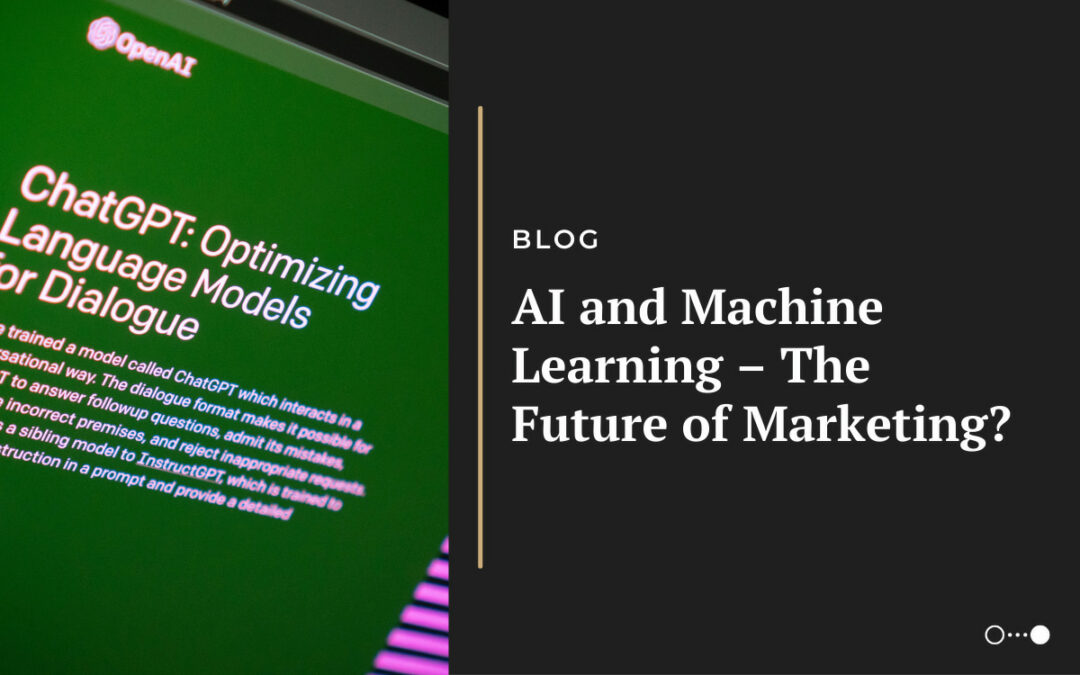By now you’ve probably heard of ChatGPT, an artificial intelligence (AI) chatbot released by OpenAI in November 2022 that can, seemingly, solve all your writing woes, act as a virtual assistant, analyze data, help you brainstorm, and more. Sounds incredible (and a little overwhelming) to most. But is ChatGPT or any other AI model really the replacement for full-service marketing? At Catalyst, we don’t think so.
As a marketing agency, we’re always looking for, researching, and testing out the latest innovations in technology, and staying current with emerging platforms such as ChatGPT is no different. At the end of the day, who wouldn’t want a system at their fingertips that can help find efficiencies in everyday workflows? However, with that in mind, there are limitations — as well as potential ethical issues — that should be considered before jumping right in and expecting AI to replace your need for a marketing partner.
Understanding the Limits of AI
In a recent episode of our Good Mood Marketing® podcast, our team spoke with Mike Whaling, Founder of 30 Lines, on the topic of ChatGPT. One key piece of advice he offered was that users should be careful before taking content outputs at face value. While tools such as ChatGPT can be incredibly creative, they don’t take the necessary step of ensuring all information is accurate. This can lead to serious misinformation if output isn’t fact-checked prior to using.
Additionally, there are already dozens of articles and conversations around how ChatGPT-generated content can impact an SEO strategy, as well as how Google will potentially penalize AI-created content. Though these decisions are still in the early stages, it’s important to understand that your online rankings will likely be affected if your content isn’t original work.
Some key takeaways to keep in mind:
- ChatGPT uses data up to 2021, resulting in potentially outdated information.
- AI learning doesn’t have the ability to understand context, making it difficult to tailor responses to specific or unexpected situations.
- Responses are only as good as the information fed into the platform.
Discovering the Possibilities of AI
While there’s a need to be cautious when using any AI platform, there are also a myriad of ways they can be extremely helpful. Ultimately, it’s up to us humans to use common sense when it comes to utilizing these tools. As Mike Whaling put it, “consider ChatGPT to be like a junior copywriter — it can probably get things about 80% of the way there, but there still needs to be an element of review and fact-checking before publishing that content to the masses.”
A few practical use cases we’ve identified for our team include:
- API queries and suggestions for new tools and helper libraries
- Kickstarting brainstorms with various prompts and ideas
- Draft messaging for internal communication
- Research for new client work and background on projects
- Analyzing results and creating formulas within Excel
In each case, we recommend using ChatGPT as a tool to help get started rather than expecting a packaged final project.
Will AI Replace Marketing Agencies?
Ultimately, ChatGPT and AI can’t replace true human creativity — and the strategies, experiences, and heart that goes into the work we create. People are the ones who bring the new ideas and come up with fresh content. With constantly changing trends and unpredictable audiences, it’s critical that more goes into a marketing plan than just data — that’s where Catalyst comes in, and we’re here to stay.
As we continue to learn more about ChatGPT and other innovative tools, Catalyst is committed to setting transparent boundaries and expectations for our clients. View our pledge and understand exactly where — and how much — we’re currently incorporating AI.

